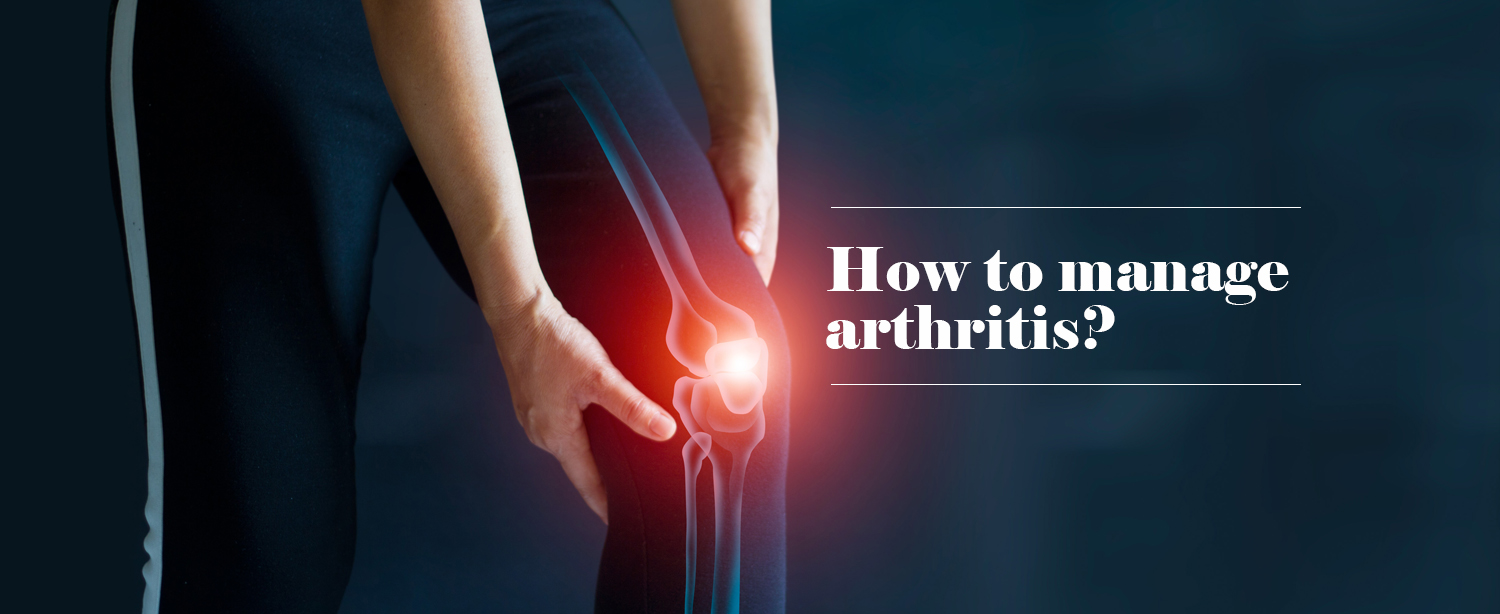More than 18 crore Indians suffer from arthritis, which is the leading cause of joint pain, mobility problems, and discomfort among women. Over 14% of Indians seek medical attention each year for this joint issue. Age-related degenerative arthritis, which involves cartilage degeneration (wear and tear) and can affect any joint, including the knee, is the most prevalent type of arthritis found in India. While osteoarthritis remains the most common form of arthritis, other common joint conditions affecting Indians include gout and rheumatoid arthritis. Poor nutrition, obesity and a deficiency in vitamin D levels are the main cause behind this condition which affects more women than men.
What is Arthritis?
Arthritis is a common disorder that affects your joints, causes pain and inflammation, making it difficult to move or stay active. Arthritis comes in a variety of forms. More than 100 different diseases and disorders that affect the body’s joints collectively fall under the umbrella term “arthritis.” Each type has unique symptoms and can need a different set of treatments. People of all ages can be affected, and it can range from moderate to severe symptoms. It is a significant source of disability and, if untreated, can lead to:
- Chronic pain
- Stiffness or swelling
- Limb deformities
- Impaired range of motion
These signs can significantly interfere with your daily life. It might be challenging to learn how to live with arthritis. However, you can manage the symptoms and enhance your quality of life with the right care and therapy from orthopedic specialists. The type of arthritis, personal health requirements, level of pain, and presence of symptoms in other body organs will all influence the treatment.
Lifestyle changes for Arthritis
Maintaining a healthy lifestyle may lower your risk of getting some types of arthritis. Additionally, it can lessen how severe your symptoms are. For instance, being overweight or obese puts more strain on your joints. It might also aggravate the symptoms of arthritis by causing widespread inflammation. These symptoms may be lessened by a healthy weight loss. The first stages in controlling arthritis symptoms frequently involve making healthy lifestyle adjustments. Try to get more sleep, work out frequently, and eat a low-fat, high-fiber diet. Exercise may be very beneficial for easing arthritic symptoms. Low-impact exercise has shown to help strengthen bones and muscles, alleviate pain and fatigue, and enhance joint mobility.
Managing Arthritis
There are several effective ways to ease the pain of arthritis with medication, exercise and stress reduction techniques. How you manage your arthritis will have a significant impact on how well you recover from your illness and maintain your health. Making good lifestyle decisions and learning how to control the mental and emotional impacts of arthritis are both aspects of self-management. You’ll need to develop a close relationship with your doctors and learn everything you can about your condition. You can successfully control your sickness by practicing these self-management techniques:
- Keep your joints moving with daily gentle stretches.
- Engage in non-impact cardio.
- Strengthen the muscles around a painful joint.
- Pay attention to your joints, while sitting, standing or engaging in activity.
- Avoid activities that involve high impact or repetitive motion.
- Always maintain a good posture.
- Manage your weight.
- Know your limits and balance activity and rest.
- Use the stairs less often.
- Try cold and heat therapy.
- Use a mobility aid if required.
- Quit smoking.
- Maintain a healthy diet.
- Take medications if prescribed
- Remove hazards in your home that could lead to a fall.
- Improve sleep.
Arthritis Treatment at Kokilaben Dhirubhai Ambani Hospital
Experts at our Centre for Bone & Joint offer comprehensive treatment for disorders of the musculoskeletal system that includes arthritis. Our dedicated operation theatres are supported by Computer-Aided Navigation Systems for Joint Replacement & Arthroscopic Surgery that provides superior long-term results. We also offer a Physical Medicine and Rehabilitation Programme that helps our patients recover after a knee replacement surgery. Our Centre for Physical Medicine & Rehabilitation has dedicated areas for instrumented gait and motion analysis, isokinetic multi-joint dynamometer, pneumatic strength training and exercise systems to assist in recovery of arthritis patients.


